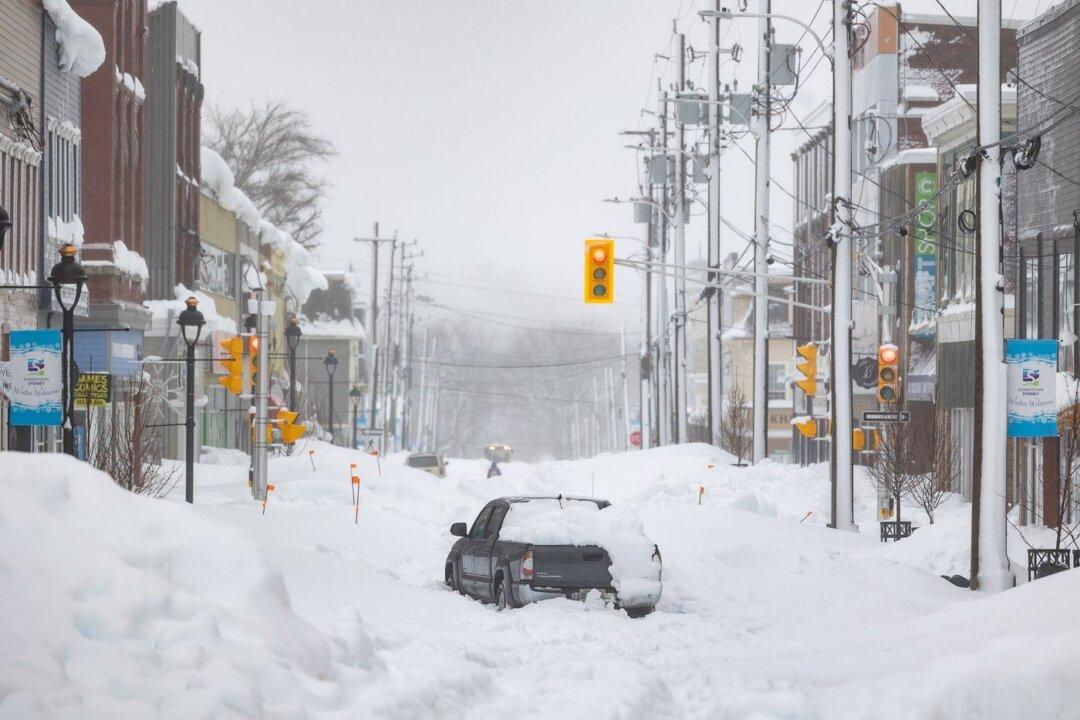The mayor of Cape Breton’s largest municipality says she wept the night of Feb. 6 when a huge snowplow rumbled down her street in Sydney, N.S., where she had been trapped with her family since a weekend storm dumped 150 centimetres of snow on the community.
“My three-year-old ... was so excited,” Amanda McDougall said in an interview on Feb. 7, recalling the arrival of the plow. “It was palpable in the air how happy we all were.”





